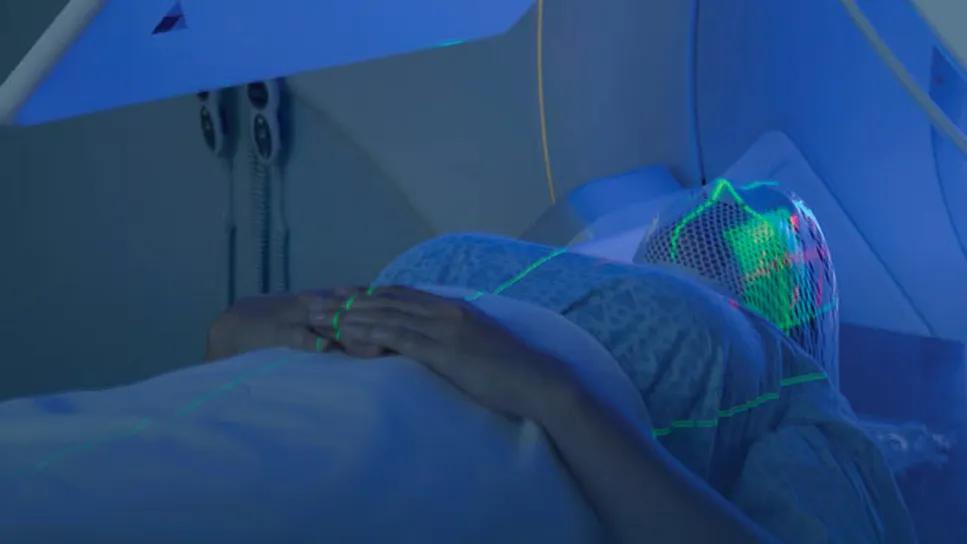
Image content: This image is available to view online.
View image online (https://assets.clevelandclinic.org/transform/6bc13cdf-ff73-468e-9e4d-518370798cfd/cancer-institute-at-astro-24-614740874)
Radiation therapy
Groundbreaking research from Cleveland Clinic investigators on treatment of breast, head and neck, and pediatric cancers as well as a novel approach to plan-of-care review will be featured at ASTRO 2024. The premier radiation oncology scientific event runs from September 29 to October 2 in Washington, DC, and brings together 9,000 attendees, both in person and virtually.
Advertisement
Cleveland Clinic is a non-profit academic medical center. Advertising on our site helps support our mission. We do not endorse non-Cleveland Clinic products or services. Policy
Prevention of burnout is a key focus of the conference, which revolves around the theme of “Targeting Provider Wellness for Exceptional Patient Care”. Published research shows that the condition is common among radiation oncologists at all career stages, with prevalence ranging from 30% to as high as 63% in individual studies.
“Thankfully, wellness has become an area of increased focus in medicine. A physician’s physical, mental and psychological health should be prioritized as we need to serve as role models for other healthcare providers as well as our patients. By prioritizing wellness, we are able to deliver the best care possible for our patients,” says John Suh, MD, FASTRO, Department Chair of Radiation Oncology at Cleveland Clinic Cancer Institute.
“I am looking forward to listening and learning more about provider wellness, especially the mitigation of burnout and moral injury. I believe one of the first steps is recognizing when burnout is occurring and asking for help. Other strategies include setting boundaries, taking purposeful vacation time and bringing meaning, joy and purpose to one’s work, which is admittedly challenging given the current demands of health care. Advances in artificial intelligence will hopefully decrease workload and increase the efficiency and effectiveness of physicians on a daily basis.”
A key clinical highlight of ASTRO 2024 is the Presidential Symposium, scheduled for 9:30 a.m. on September 29 and moderated by ASTRO President Howard Sandler, MD, MS, FASTRO. The focus is on New Innovations in Genitourinary Cancers, with presentations on topics such as individualized stereotactic ablative radiotherapy (ISABR) and SABR for renal cell carcinoma, trimodality therapy for bladder cancer and re-irradiation for local recurrence of prostate cancer.
Advertisement
“High-dose, high-precision stereotactic radiation therapy and radiosurgery were initially used to treat cancer and conditions of the brain, but applications have now expanded to many other areas of the body, including genitourinary sites,” says Dr. Suh. “The Presidential Symposium provides radiation oncologists an outstanding opportunity to learn about innovative approaches and advances to provide better, personalized outcomes for patients with genitourinary cancers.”
New Cleveland Clinic research being presented at ASTRO includes:
“A major direction in radiation oncology is the use of hypofractionation or fewer fractions for many disease sites. Our breast cancer abstract examines outcomes with this approach for some breast cancer patients. By identifying a high-risk population for nasopharyngeal carcinoma in the United States, we will be able to identify patients with earlier, more curable disease who currently have no access to anti-EBV screening,” says Dr. Suh. “Our pediatric cancer research is an assessment of local control outcomes based on local failure dosimetry analysis for patients with metastatic osteosarcoma. The use of the 40-gene expression profile provides a biomarker that can help identify immunosuppressed patients who have higher risks of recurrence despite having lower stage (T1-T2a) disease.”
Advertisement
The fifth Cleveland Clinic abstract (#1080) is a 5-year analysis of the organization’s experience with a novel prospective plan-of-care review, a process aimed at improving the quality and consistency of contours for both tumor and normal tissues. “These reviews are done prospectively at our sites in Ohio and Florida. Cases are randomly selected and reviewed every Tuesday by physicians, dosimetrists and medical physicists,” says Dr. Suh. “The aim is to provide prospective, psychologically safe feedback to providers so we have high-quality, consistent contours, which allows us to optimize treatment planning, improve patient outcomes and learn from each other.”
Advertisement
Advertisement
Key themes and insights into the family-caregiver experience
First-of-its-kind clinic for immune-related adverse events supports oncologists in managing severe side effects
Early communication between oncologists and ophthalmologist warranted
Variables affect nuances of the conversation
Driving advances in cancer care
Challenges emerge with application of interim PET scans
Complex, bidirectional interactions exist between cancer, therapy, toxicities and eating behaviors
Helping patients with cancer struggling with depression, anxiety and other mental health issues